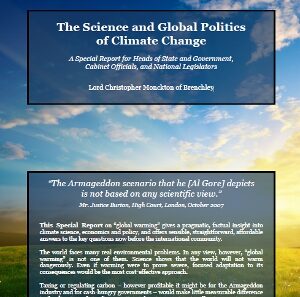In recent years, the dialogue surrounding climate change has become increasingly urgent. As scientists and activists alike underscore the severity of global warming, the focus has shifted towards identifying effective strategies to mitigate its impact. One area of considerable attention is the food choices we make, particularly concerning beef consumption. A metaphorical crossroads emerges: while beef has historically represented a staple in many diets, degradation of the environment linked to cattle ranching has stimulated the quest for alternatives. Beyond beef lies a vast array of food possibilities that can cultivate a more sustainable future.
The fascination with meat consumption, particularly beef, is entrenched in historical norms, cultural practices, and sensory pleasures associated with taste. Yet, it is imperative to unravel this enigma and explore why moving beyond beef is not only desirable but also essential. Beef production is notorious for its substantial carbon footprint. Cattle farming releases considerable amounts of methane, a greenhouse gas that is significantly more potent than carbon dioxide over a shorter timeframe. Furthermore, the deforestation associated with grazing lands disrupts delicate ecosystems, exacerbating biodiversity loss.
On the surface, enjoyment of beef hinges largely on the gustatory gratification it provides. Juicy steaks, hearty burgers, and rich braises all evoke strong sensory memories. Nevertheless, this enjoyment often overshadows the pressing need to re-evaluate our consumption patterns. In scrutinizing our personal habits, deeper motivations often surface: ethical considerations regarding animal welfare, health implications stemming from red meat consumption, and the environmental ramifications of current agricultural practices.
Transitioning away from beef consumption extends beyond mere substitution; it entails embracing a broader palate that includes plant-based and alternative protein sources. The myriad options available, from legumes and pulses to innovations in plant-based meats, can satiate cravings and provide sustenance without engendering extensive ecological damage. These alternatives not only contribute to reduced carbon emissions but also present an accessible means of diversifying dietary habits.
The incorporation of legumes, such as lentils and chickpeas, is particularly noteworthy. These protein-rich plants are not only nutritious but also contribute to soil health through nitrogen fixation, thereby promoting sustainable farming practices. Additionally, they require significantly less water and land compared to beef production. A culinary landscape enriched by these ingredients offers numerous possibilities; think hearty lentil stews or spicy chickpea salads. The depth of flavor and versatility they provide can rival traditional meat dishes without the environmental toll.
A burgeoning field in sustainable eating is the introduction of lab-grown meat. This innovative approach leverages cellular agricultural technology to produce meat without the need for traditional livestock farming. Cultured meat presents a promising solution to alleviate the demand for grazing land, reduce emissions, and curtail animal suffering. Although still in its infancy, the growing interest and investment in this technology signal a shift toward revolutionary food production methods.
Additionally, adopting a largely plant-based diet encourages seasonal and local sourcing practices, further minimizing the carbon footprint associated with food distribution. This philosophy champions crop diversity and supports local farmers, engendering community resilience and promoting biodiversity. When consumers prioritize seasonal produce, they not only engage in environmentally responsible practices but also experience fresher, often tastier food. Grasping the variety of flavors available in seasonal vegetables can inspire creative culinary endeavors, transforming mealtime into an exploration rather than a routine.
Beyond individual plate choices, collective consumer behavior can influence market trends and push industries towards sustainable practices. The rise in vegetarianism and veganism serves as testament not only to shifting diets but also to a burgeoning awareness of the ecological stakes at play. When consumers demand more sustainable options, producers are compelled to respond by adopting practices that prioritize environmental integrity.
Government policies and institutional reforms play a pivotal role in advancing the food systems needed for a greener future. Legislative advocacy for sustainable agriculture incentives, educational programs on plant-based nutrition, and long-term investments in agricultural innovation are essential steps. Shaping food policies that reflect ecological concerns can lead to transformative changes within both urban and rural contexts.
The nexus between food choices and climate action does not end at the individual or institutional levels. The collective commitment to rethink our relationship with food transcends cultural barriers, fostering a shared global responsibility. Global warming does not discriminate; rising temperatures and extreme weather events affect populations worldwide, igniting a call for unified efforts to combat its pervasive impact.
Community engagement and public dialogue around food sustainability fosters an inclusive framework for addressing climate issues. Initiatives such as local food cooperatives, community gardens, and educational workshops enrich local knowledge while promoting sustainable practices. These grassroots movements serve as platforms for advocacy, celebrating the vibrant tapestry of culinary traditions while revolutionizing our approach to consumption.
The pathway to sustainability is nuanced and multifaceted. Yes, moving beyond beef is largely an environmental imperative, but it also embodies a broader commitment to health, ethics, and community engagement. Understanding the interconnections among these elements creates a comprehensive narrative encouraging change at all levels. In this light, the transition from beef-centric diets to diversified, sustainable food practices emerges as one of many potential vehicles driving society toward a greener future.
In conclusion, while our fascination with beef may run deep, the necessity for change is ever-pressing. By exploring diverse alternatives and actively participating in collective action, individuals can contribute to a diet that aligns with eco-conscious values. In doing so, society not only addresses the immediate threats posed by climate change but also cultivates a legacy of resilience and adaptability for generations to come. The journey beyond beef represents not merely a dietary shift but a profound realignment of our values and priorities as stewards of the Earth.






